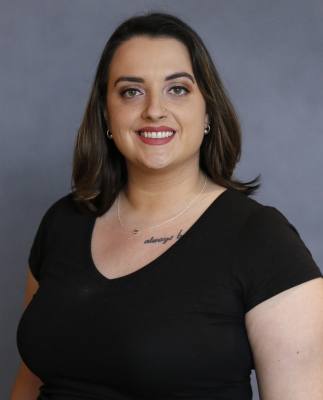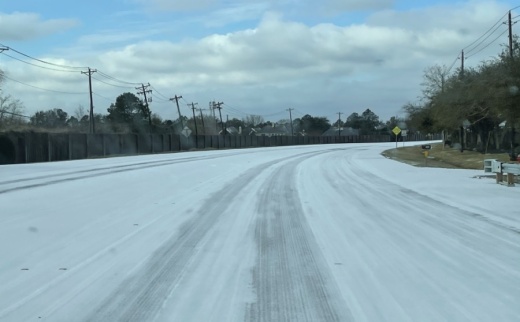“Watching staff firsthand does make you proud, seeing all of the dedication,” Cole said at a Feb. 22 City Council meeting. “It was truly teamwork watching everybody come together to work together in an emergency.”
Pearland and Friendswood, like cities all over Texas, were affected by the freezing temperatures as 1.42 million customers were left without power for several days. Residents in both cities experienced burst pipes, power outages lasting several days, and a lack of hot water and heat. Both cities and businesses worked to make sure people were taken care of.
“During crises like that, I enjoy how gracious people can be,” Central Texas BBQ owner Ruth LeClere said.
Learning from experience
The morning of Feb. 15, the winter storm knocked power plants out across the state. The state narrowly avoided a statewide blackout, which would have taken weeks to fix, said Bill Magness, the former CEO of the Electric Reliability Council of Texas.
“If we have a blackout of the system, the system is out for an indeterminate amount of time,” Magness said in a Feb. 24 emergency meeting. “We may still be here today talking about when is the power going to come back on.”
Magness said the crisis was a result of the storm and the state’s power generators’ inability to work in such extreme weather, as there are no regulations requiring power plants to reinforce themselves against the weather.
“The whole ... world saw what happens when government fails last week,” Pearland City Council Member Luke Orlando said. “They saw something different in the city of Pearland.”
Officials learned not only about the power grid, but also about how to get water out to people, City Manager Clay Pearson said.
The city of Pearland gets the majority of its water from the city of Houston. The storm is a major reason to continue to diversify city water sources, Cole said, as residents experienced low water pressure from Houston’s supply.
Cole asked city officials to stockpile a supply of water bottles before hurricane season begins.
“Every single storm event, this is an issue,” Cole said at the council meeting. “If we had that kind of stockpile ready to go, it would be good for our folks, and I think our investment could be very minimal.”
Meanwhile, the city of Friendswood is working on debris pickup. According to city data, 311 residential structures were affected by the storm.
“I feel like we were well prepared, and our plans were enacted, and we did what we needed to ... ensure everything was operational,” Emergency Management Coordinator Brian Mansfield said.
Pearland and Friendswood are planning on applying for any available Federal Emergency Management Administration reimbursements. Pearland City Council also asked staff to review building codes and assess city buildings to see whether facilities are resilient.
Community comes together
In the midst of the storm, the community worked together, Ruth LeClere said.
She and her son Devon LeClere are the owners at Central Texas BBQ, a locally owned Pearland restaurant that has been in the city for over 50 years. During the storm, the restaurant retained power and continued to serve food to the community.
Ruth LeClere said the family has learned from past disasters. They keep an eye on the weather and, when a storm of any kind approaches, stock up on extra supplies however they can.
This time, Devon LeClere purchased all-season tires for his truck—which came in handy as he hurried to several grocery chains a day during the storm to try to locate restaurant supplies in the absence of normal deliveries.
The eatery was forced to close early a few times when food ran out during the storm days, she said. Still, as one of the only area restaurants operating, it served whatever they could.
“Whenever any kind of emergency like that happens, you just kind of think outside the box,” she said.
Some local businesses are still helping citizens in the aftermath of the storm. Big John’s Plumbing and Water Heaters is working seven days a week trying to fix burst water pipes.
Owner John Johnston said he started receiving calls about no water the morning of Feb. 15. His business received 295 texts with questions about water in the first hour of the storm.
“You couldn’t keep up with it; you had to pretty much just do what you could,” he said.
Johnston was not in the plumbing industry for the 1989 freeze, but he heard stories from those in the industry. His biggest takeaway from this storm is stream water—not drip faucets—to save the pipes.
“I told a majority of my customers that, and a lot of them got saved by [doing] that,” he said.
Johnston is anticipating a shortage of tankless water heaters and is trying to stock up on those. He has most of the materials needed to do permanent repairs and has easily been able to secure supplies from other businesses in the Houston area.
“We’re trying to help each other as much as we can to keep moving,” he said.
Legislative fixes
Several ERCOT board members resigned in the aftermath of the storm, including Chair Sally Talberg and Vice Chair Peter Cramton. Magness was fired.
ERCOT was founded in 1970 to manage the power grid that covers most of the state. According to the agency, its primary duties since 1999 have been to maintain electric system reliability, facilitate a competitive wholesale market and ensure open access to transmission.
“We have one major regulator with the Public Utility Commission, and that independence has been jealously guarded, I think, both by policymakers and by the industry and ERCOT,” Magness said in an informational video published by the council.
Ramanan Krishnamoorti, a chemical engineering professor and chief energy officer at the University of Houston, said ERCOT’s longstanding independence also came from the state’s desire to avoid federal interference in its power grid.
“If you go national, you have the federal government putting its full force behind it—of rules and regulations,” he said. “So the Texas uniqueness has really sort of stemmed from the idea that they did not want the federal government to dictate what happens with generation and distribution of electricity.”
Lawmakers looked at ways to better prepare for extreme winter weather, including allowing ERCOT to issue fines for violations or requiring a standard of winterization. Pearland state Rep. Ed Thompson filed House Bill 2325, which states all nursing homes and assisted-living facilities must be equipped with an operational emergency generator or similar power source, according to a press release.
While the state continues to make changes, cities and businesses will continue day-to-day operations to ensure safety during the next storm.
“All in all, many of the cities across the state had to improvise, but it was a shining moment for local governments in terms of rising up to that and doing what we could under very difficult circumstances,” Pearson said.
Olivia Aldridge, Shawn Arrajj, Chris Neely and Ben Thompson contributed to this report.






